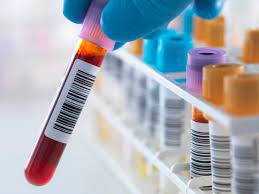What is a U&E blood test?

A urea and electrolytes (‘U&E’) blood test measures the levels of urea (‘U’) and creatinine (similar to urea), and electrolytes (‘Es’), in your blood.
A U&E is a common blood test that helps assess kidney function, fluid balance, and electrolyte levels.
Urea and creatinine are waste products that need to be removed from the body. Electrolytes are important minerals in the body.
What’s measured
- Electrolytes: Sodium (abbreviated to Na), potassium (K), chloride (Cl), and bicarbonate (HCO3)
- Waste products: Creatinine (creat) and urea; creatinine is more reliable than urea. Both are normally removed by the kidneys
- Bone minerals: Phosphate (PO4) and calcium (Ca). Though these can be part of a separate test called bone biochemistry (bone, see below). That can also include alkaline phosphatase (alk phos), vitamin D and magnesium.
Why it’s important
The result can tell a doctor about:
- Kidney function. High levels of creatinine and urea in the blood can indicate chronic kidney disease (CKD) or acute kidney injury (AKI)
- Heart rhythm. Abnormal levels of electrolytes can cause abnormal heart rhythms
- Fluid state. Electrolytes imbalance can lead to fluid overload
- Mental function. Electrolyte imbalance can cause seizures, delirium, and coma.
U&Es can also help with assessing
- Kidney disease – monitoring kidney function over time
- Acid-alkali balance – investigating the cause of pH (acid-alkali) disturbance
- Medication – helping doctors decide if it is safe to increase the dose of some heart (and other) medication.
Other blood tests
It is often done at the same time as another blood test called a full blood count (FBC) which is done looking for anaemia and other blood problems.
Hence doctors may say (and request) ‘FBC and U&Es’. They may also add to that request ‘glucose, LFTs (liver function tests) and bone’.
Summary
We have described what is a U+E blood test. We hope it has been helpful.

